Bonjour Tristesse (1958)
“She’s changed him; she’ll change me — she’ll change everything!”
|
Synopsis: |
|
Genres, Themes, Actors, and Directors:
Review: Unfortunately, young Seberg hadn’t yet discovered her acting chops; her delivery of lines is stilted at best, and the obvious post-dubbing doesn’t help matters any. Yet she exudes charm and youthful beauty, and remains compelling to watch. Her character’s close relationship with Niven (nicely cast against type) reminds one of Gidget and her widowed father, though with a decidedly sensual tinge; Cecile is remarkably comfortable with the explicit knowledge of her father’s summertime affair with the sexy yet safely innocuous Elsa (Mylene Demongeot). Also impressive is Deborah Kerr in a thankless yet pivotal role as Cecile’s godmother — a ruinous presence in Cecil’s idyllic existence. Other than Seberg and Kerr, the most memorable elements of the film are the gorgeous Technicolor visuals and sun-drenched French Riviera settings — this is very much a summertime film, with events compressed into the span of one tragically memorable vacation. The closing shot — reminiscent of Glenn Close in Dangerous Liaisons — makes for a daringly downbeat finale in an era of mostly cheerful denouements; in a way, it’s easy to see why modern critics (such as Eric Henderson at Slant Magazine) cite Bonjour Tristesse as a film waiting to be reclaimed: like Douglas Sirk, Preminger is now viewed by many as an auteur whose talents remained largely misunderstood during his lifetime. Redeeming Qualities and Moments:
No, but it’s recommended. Links: |
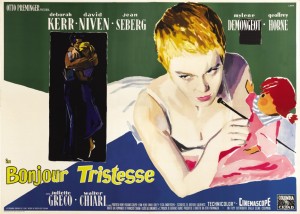
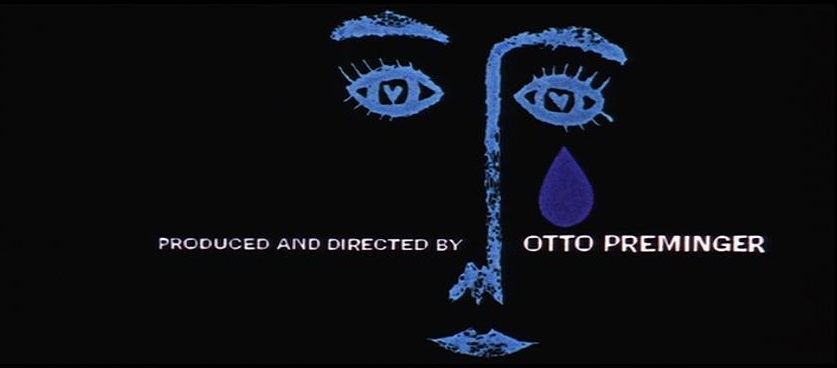

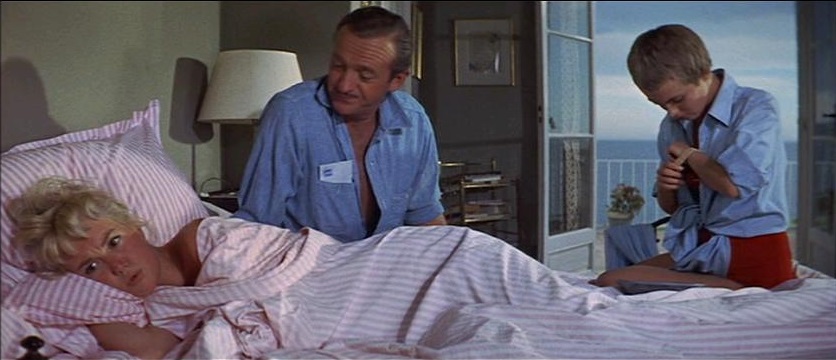


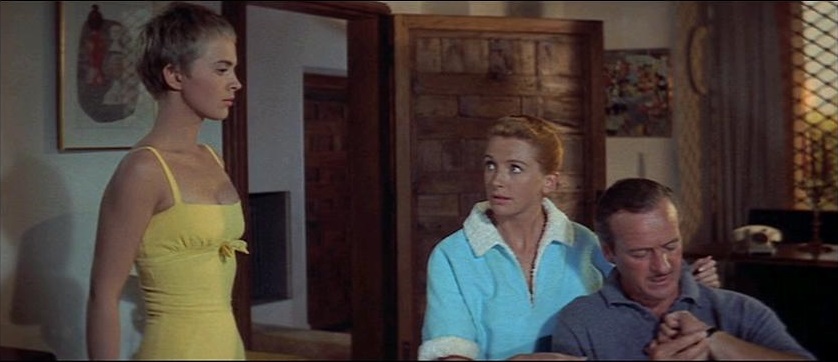
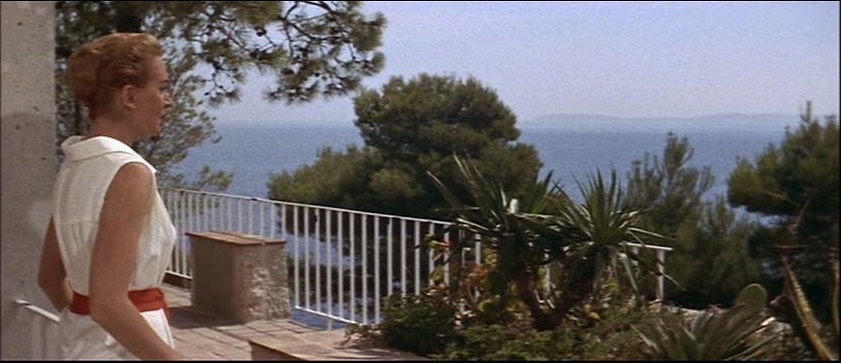
One thought on “Bonjour Tristesse (1958)”
Not a must.
Ah, the ennui of the dissatisfied – and wealthy! – and living on the French Riviera!
Though it seems Crowley had other issues besides the film when he reviewed it, I don’t think much of it myself. I certainly don’t think it has any cult value – nor do I understand why it needs to be “reclaimed”. I’ve often thought Preminger did interesting work but, unfortunately, I have to add this to his batch of misfires. The film leaves me completely cold – and, yes, that may be the point; but the exploration of these lives ultimately doesn’t seem to serve any real enlightening purpose.
The people who populate this film are so pretentious and tiresome (oddly, Seberg – who, looks aside, is kind of annoying from the get-go, applauds Niven choosing Elsa because she’s “not pretentious”!) and I rather regret spending time following them. (There is also the ‘innocent’ Philippe – hand-picked by screenwriter Laurents? – but his presence is rather inconsequential; besides, he’s seriously interested in Seberg, so…)
Speaking of the screenplay, it often seems awkward; Laurents has people saying things (unless they’re taken from the novel) which seem to fall uncomfortably from the actors’ mouths. All too rarely is there a real spot-on gem: i.e.,
Niven: I’ll show you the way, Anne.
Kerr: I can see the way, Raymond – straight down.
Re: Kerr…I don’t think her role is thankless. I’m sure she welcomed the opportunity to get away from being cast yet again as someone more or less ‘virginal’. It is – admittedly – somewhat interesting to watch her, 2/3-through, rearing her ugly head as Anne. (She is also subtly terrifying when she puts on ‘the grand facade’ to meet Elsa.)
The beauty of the scenery serves to further point up the dullness of the storyline.
Gee – guess I really don’t like this one. Quelle dommage!